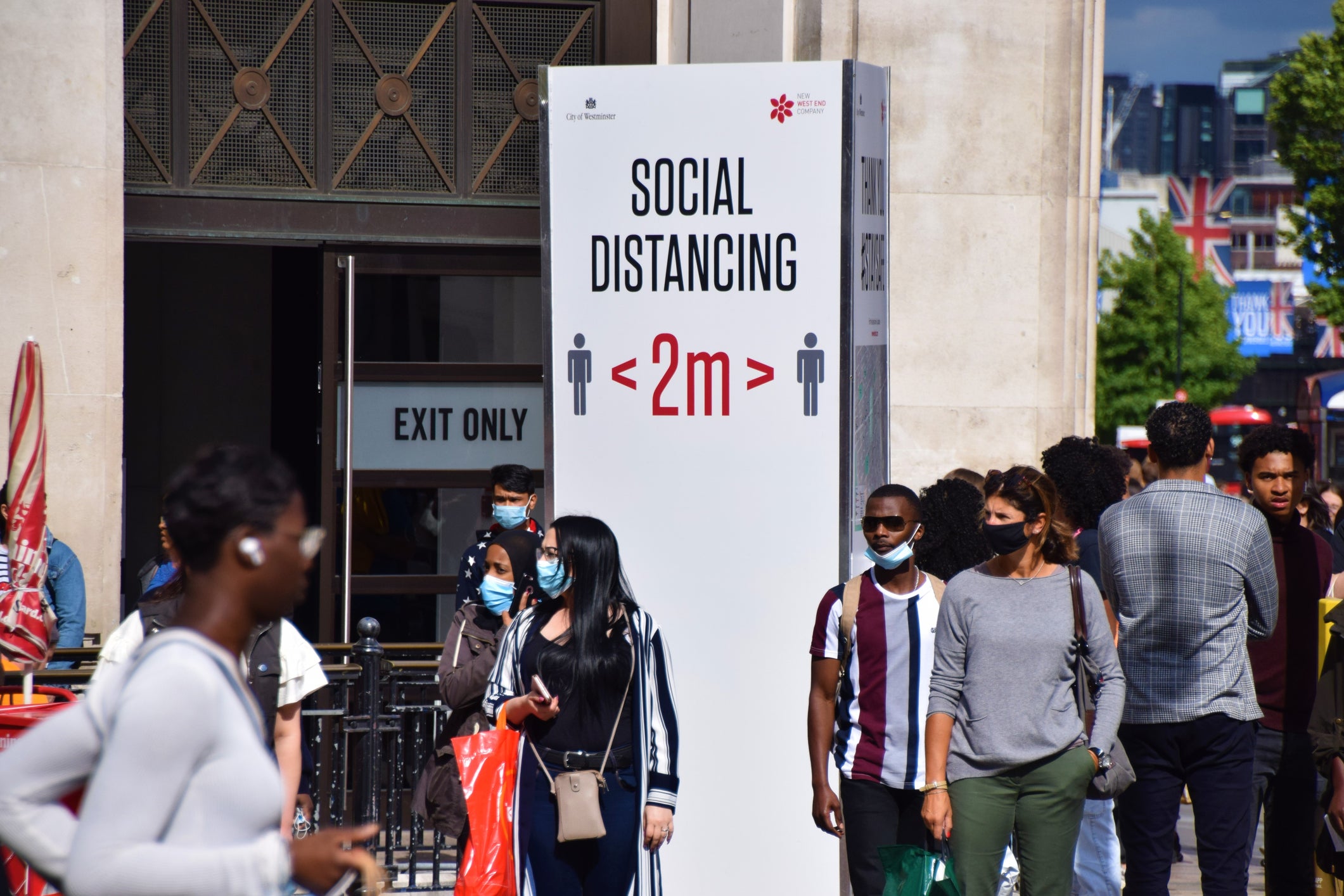Your support helps us to tell the story
From reproductive rights to climate change to Big Tech, The Independent is on the ground when the story is developing. Whether it's investigating the financials of Elon Musk's pro-Trump PAC or producing our latest documentary, 'The A Word', which shines a light on the American women fighting for reproductive rights, we know how important it is to parse out the facts from the messaging.
At such a critical moment in US history, we need reporters on the ground. Your donation allows us to keep sending journalists to speak to both sides of the story.
The Independent is trusted by Americans across the entire political spectrum. And unlike many other quality news outlets, we choose not to lock Americans out of our reporting and analysis with paywalls. We believe quality journalism should be available to everyone, paid for by those who can afford it.
Your support makes all the difference.A strengthened version of the two-metre rule could make a comeback after being watered down by Boris Johnson over the summer.
Downing Street on Monday night refused to rule out upgrading social distancing advice to "two metres plus" in a bid to stop the new Covid-19 variant from sweeping the country.
The government's Scientific Advisory Group for Emergencies (Sage) is reportedly urging ministers to reinforce the guidelines about how far away to stay from other people, to make social distancing messages clearer.
In practice this could see the rule interpreted as advising people to stay three metres apart.
The government initially went into the pandemic advising people stay two metres from each other at all times, but this was relaxed to a "1m plus" rule in some circumstances after businesses protested that it would be hard.
A government review of the 2 metre rule published on 26 June found that it was "not financially viable for many businesses to operate" under such restriction and recommended that it be loosened. Other countries also advise smaller distances.
The government now advises people "stay 2 metres apart from people you do not live with where possible, or 1 metre with extra precautions in place (such as wearing face coverings or increasing ventilation indoors)".
It comes as ministers look at ways to strengthen regulations amid fears that the current national lockdown is not driving cases down as sharply as the one in March.
The BBC reports that other alternatives under consideration include schools closing to all pupils including those of key workers, nurseries and building sites shutting, factories made to pause, an all outdoor liaisons banned.
Other loopholes that could be closed include playgrounds, laundrettes and chiropractors, according to the reports – with the final decision taken depending on how cases move in the coming days.
The Daily Telegraph newspaper says click-and-collect services could be banned for everything except supermarkets and essential retail amid concerns that some shops are using them as a loophole to effectively stay open.
Mandatory face masks outdoors, which are already imposed in some countries, are also under consideration, and other workplaces that may be shut down include estate agents.
Matt Hancock said on Monday that the government would "not rule out further action if needed".
On the question of a "two metre plus" rule, a Downing Street spokesperson said: "There are no current plans to change social distancing rules. However, everything is kept under review."
Speaking on Tuesday morning Kit Malthouse the policing minister said supermarkets should up their game by enforcing the wearing of masks on their premises and limiting the number of customers who could come in.
“I think that, understandably, following the November lockdown there was an element of release and therefore the person at the door, the sanitation station, the traffic light system, the queues outside obviously receded a bit,” he said.
"What we hope now, and I know all of them will, that they'll see their responsibility and start to put those things back in place."
It comes as the UK reports a further 529 Covid deaths on Monday, a 30 per cent rise on the 407 reported seven days ago and the deadliest Monday since April 20.
But hopes that existing measures could be working were raised by a levelling-off in the coronavirus caseload, which at 46,169 represented a 20 per cent fall on last week. Deaths tend to lag cases, which themselves lag government policy.




Join our commenting forum
Join thought-provoking conversations, follow other Independent readers and see their replies
0Comments